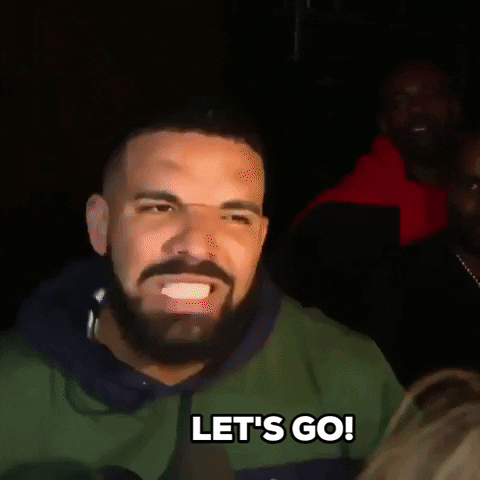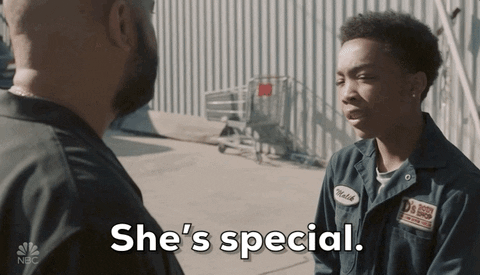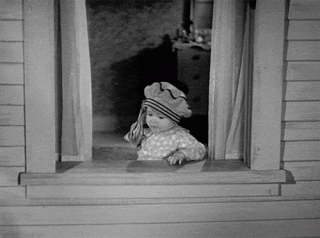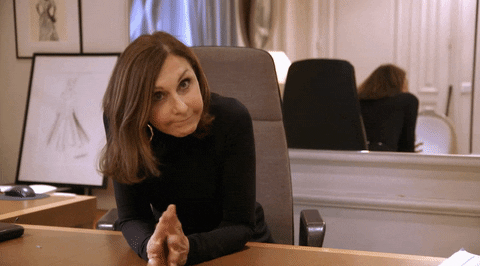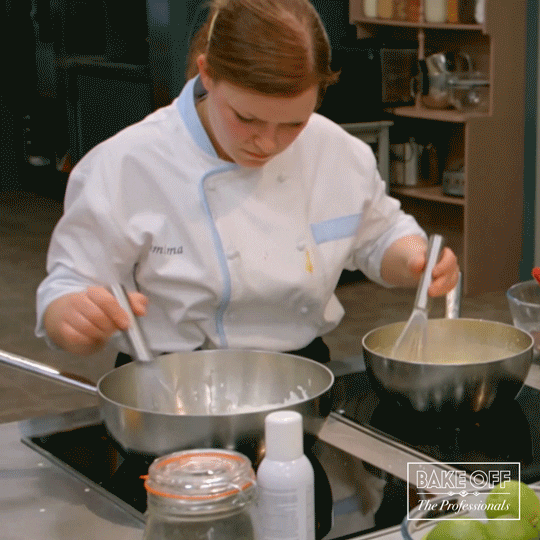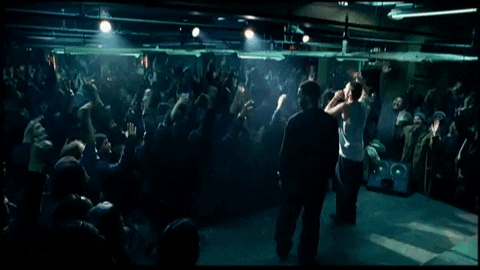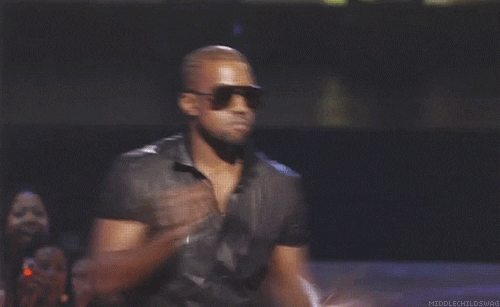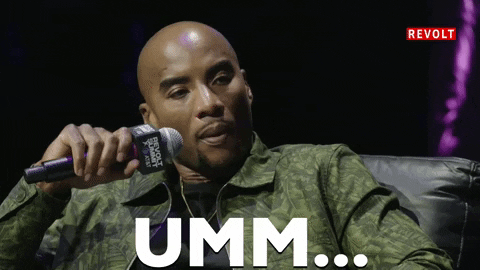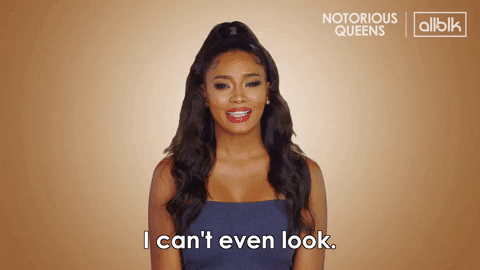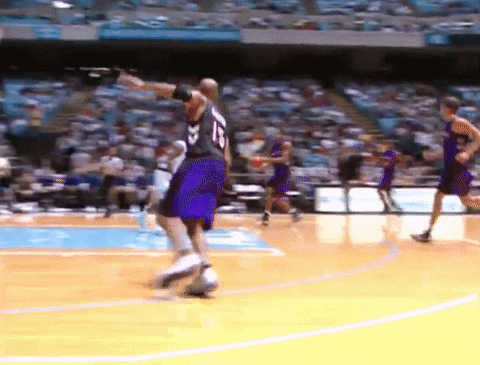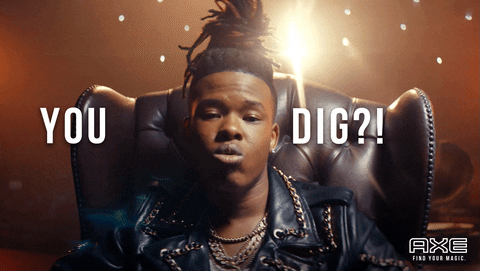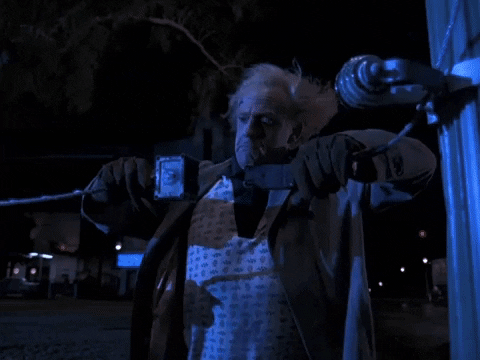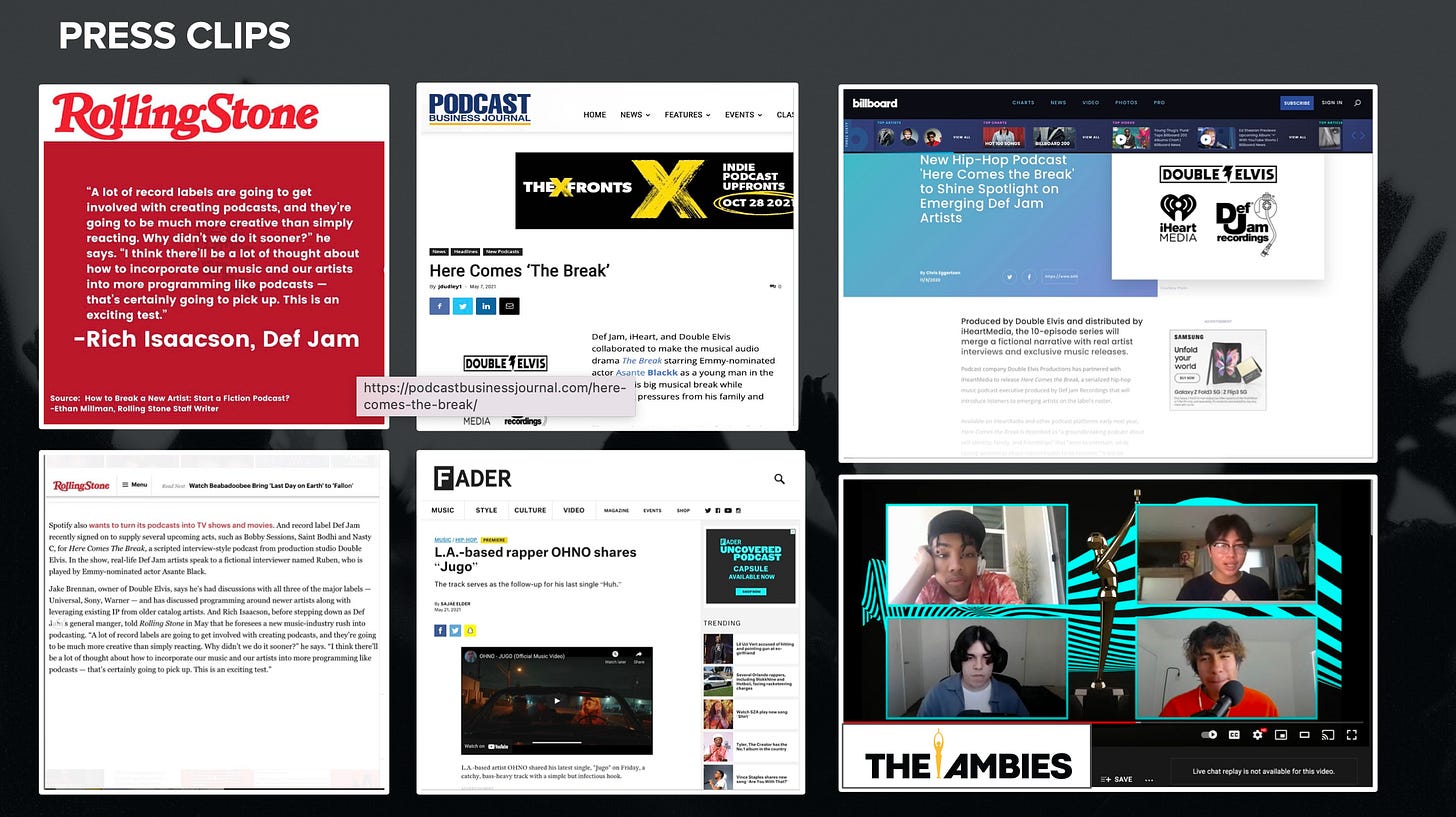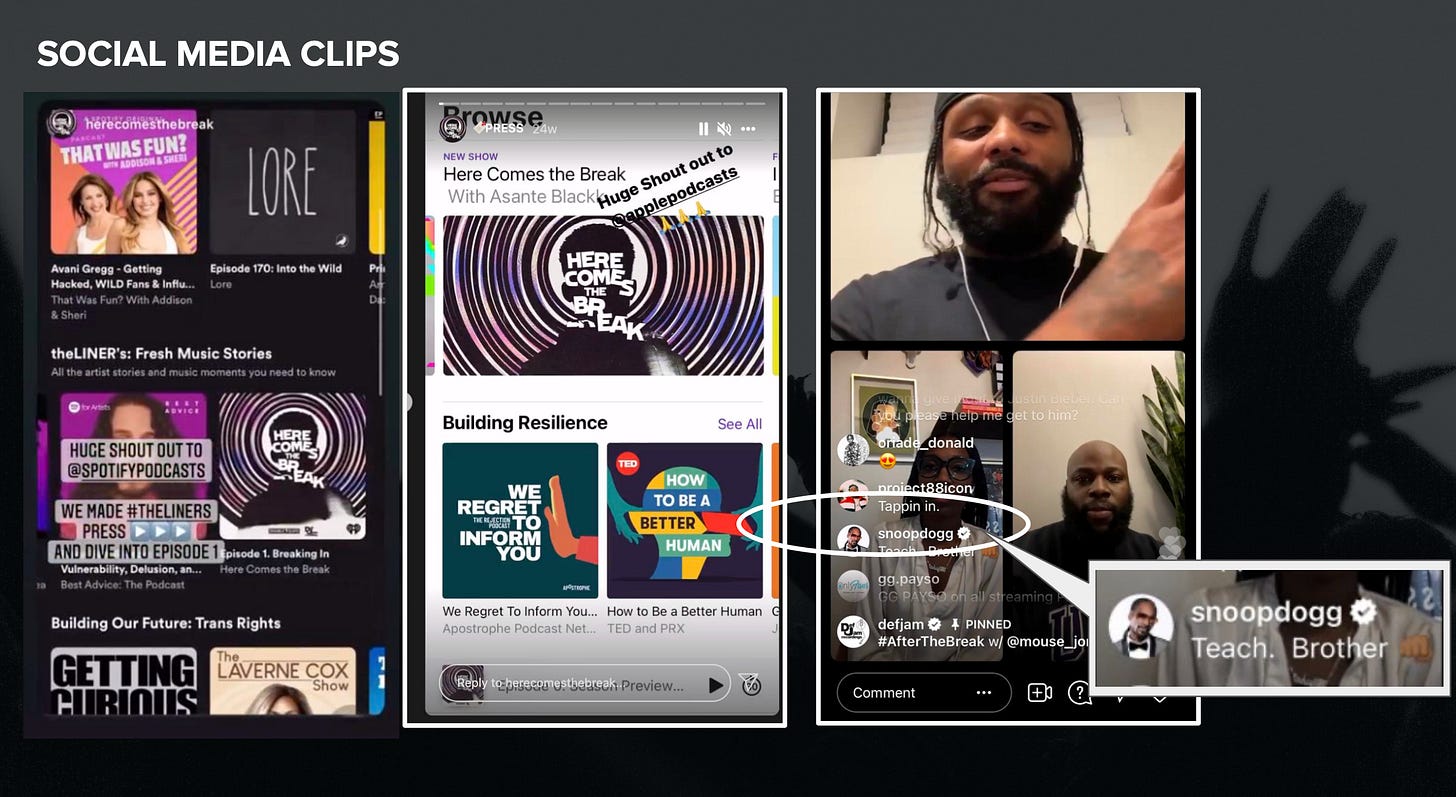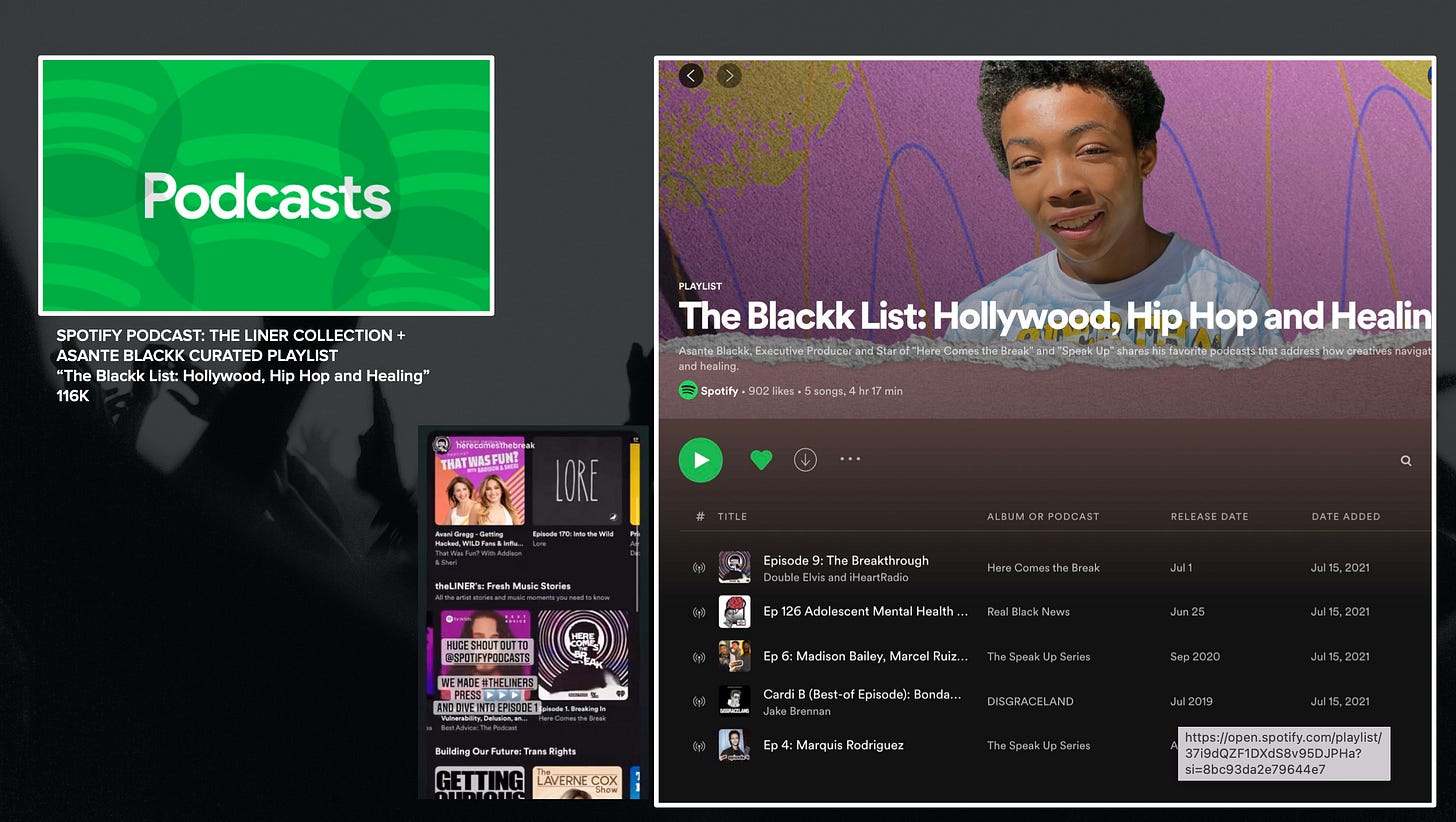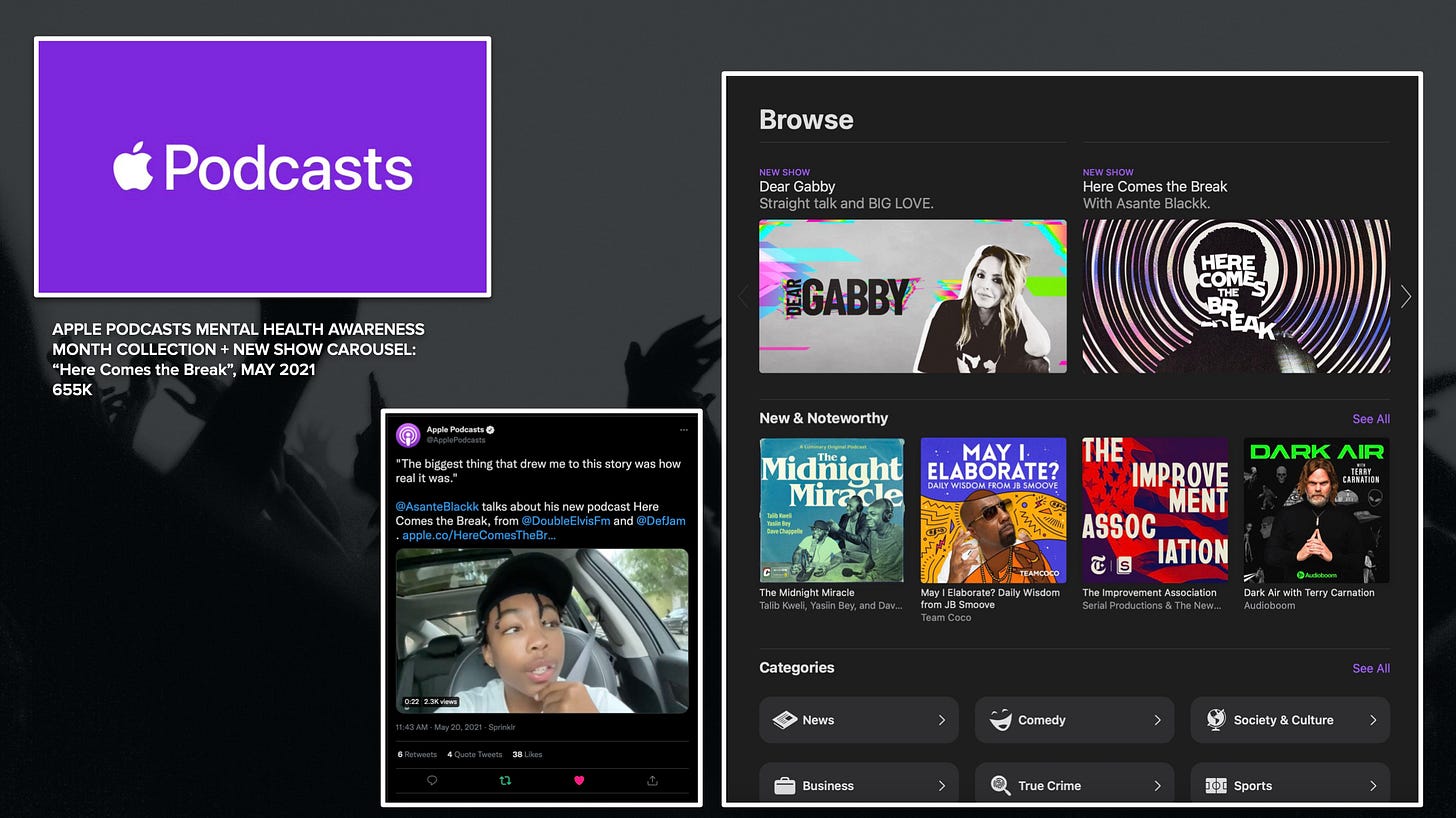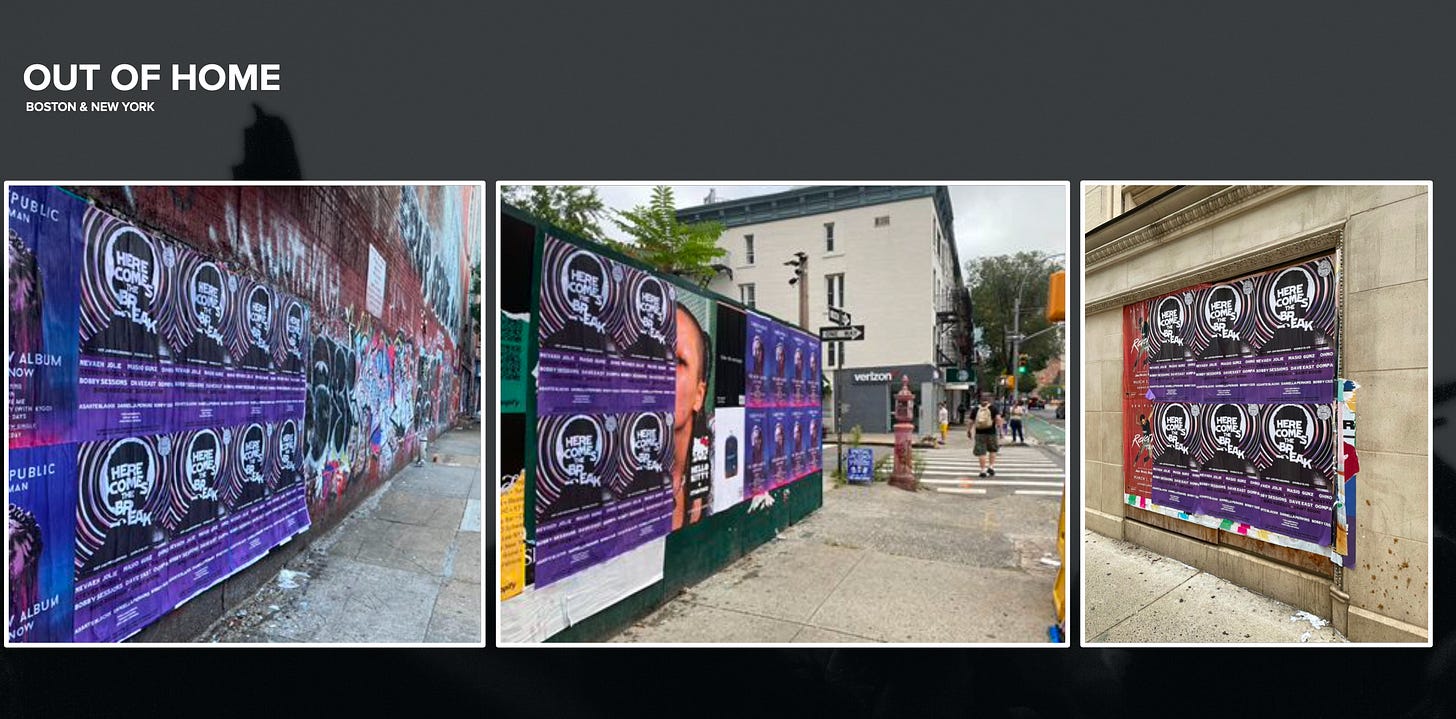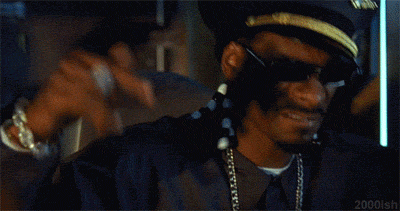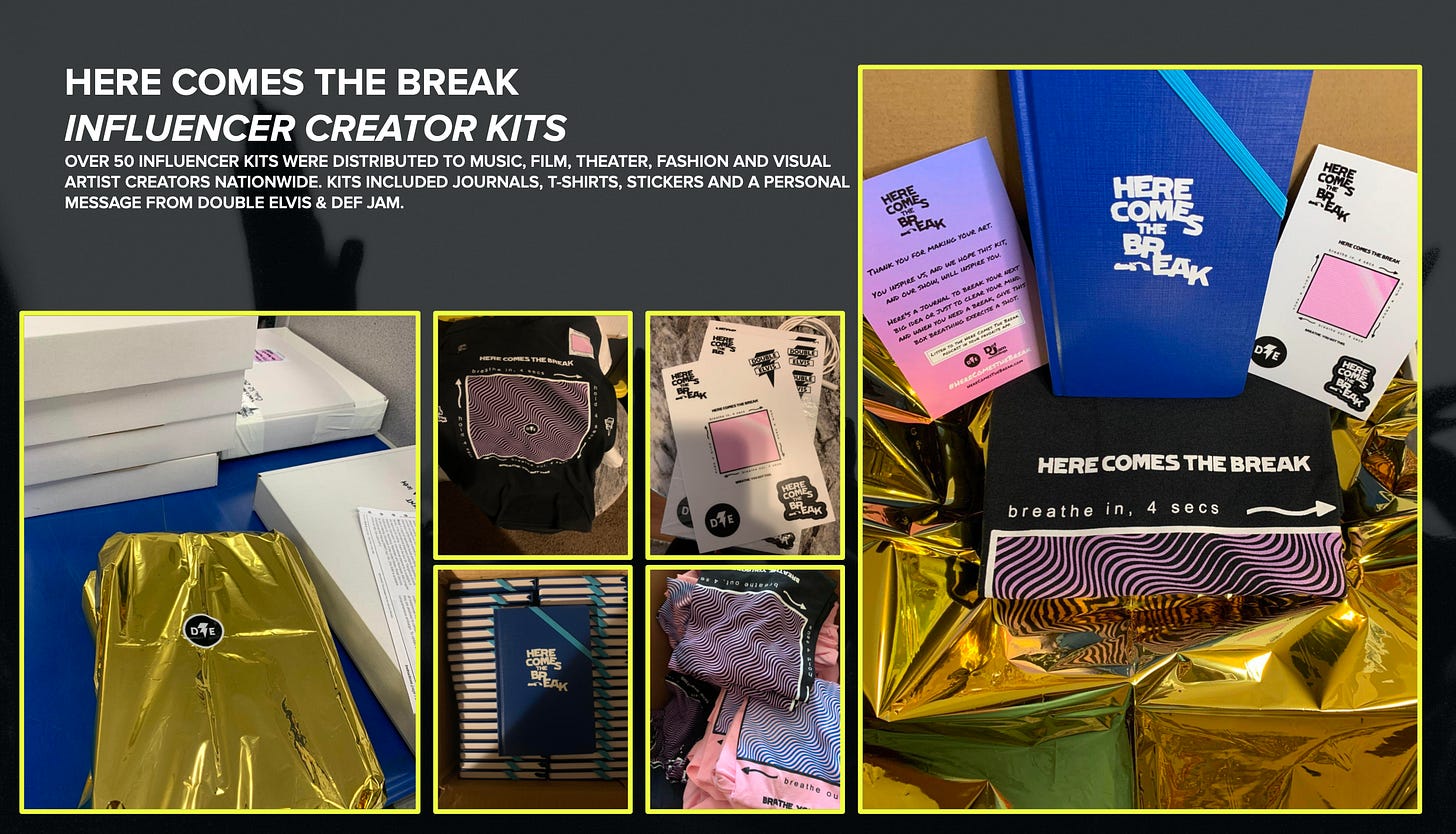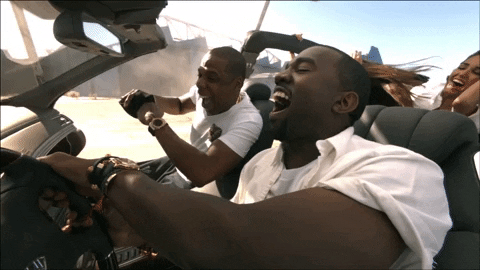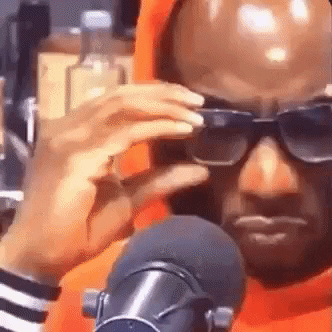“The Mad Def with Diligence”
Synopsis: Being a part of the team that brought forth the first hip-hop-inspired podcast soundtrack in history was one of the most exciting times in my career. After a year away, I can honestly say that, while at the home of Disgraceland, I experienced one of the most exhilarating creative adventures of my professional career. When I think of DE, I think of disrupters, risk-takers, and true pioneers in the podcast space.
Before I delve into our monthly marketing tip, I must also give a shout-out to the writers' room for podcasts ACROSS THE INDUSTRY. Also, kudos to the engineers, sound composers/designers, voice actors, editors, and researchers. There are so many moving pieces silently propelling each show, episode by episode. With all of these quiet contributors, it's up to the host and the marketing team to be as loud and diligent as possible about spreading the good news. The diligence should almost be deafening to your core audience. And if you can get them to “jam out” with you- that’s where you find a “def jam” (okay, enough auntie humor)…but you get where I’m going.
Dear Diary,
When I began my journey into podcast marketing, to be completely honest, I had no idea what to expect. While I understood the nuances of music marketing, diving into the world of podcast marketing presented a learning curve. "We need to move fast and break things," our CEO once told me. Nervous yet determined, I faced our first meeting with Def Jam. Here Comes the Break was set to be groundbreaking, and I was resolute that it shouldn't be the last of its kind.
The show boasted star power with Asante Blackk, fresh off his stellar performance in When They See Us, Daniella Perkins, an established Nickelodeon standout and TikTok sensation, a cast of Boston theater aficionados, and phenomenal writing and directing.
Despite the impressive lineup, there were numerous moving parts: a podcast, a music discovery tool, a message on mental health within the BIPOC community, and a show primarily targeting Gen Z, one of the fastest-growing podcast audiences. Even with these attributes, the challenge remained—how do we position the podcast to entice the right listener without alienating potential super fans?
We needed to do our “due dills.
Another crucial consideration was that, well, Def Jam is Def Jam—so while a podcast is charming, it wasn't going to make or break the legacy of this music mastodon. D.E., positioned at the crossroads of true crime and music with a mansion-sized monopoly, was venturing into its first feel-good, fictionalized audio drama.
Around Episode 5, a realization struck: while my focus was on cross-pollinating the worlds of music and podcasts, this wasn't necessarily the collective goal. Def Jam was there to introduce new music. So, download numbers and streaming numbers, despite originating from the same platform (I won’t name names- but it rhymes with Potisy), weren’t synonymous as favorable KPI’s in both the podcast and music realms. We wanted people to listen to the podcast AND download the music.
We decided, let’s do EVERYTHING! Podcast advertisements, cross-promo swaps, newsletters, app editorials, guest interviews (if Asante or Danielle weren't available, I'd offer a producer, writer, director, artist, background dancer—I’m joking), curated playlists, outdoor advertising, influencer kits, Clubhouse, TikTok, Instagram, and "door-to-door sales" a la the Church of Latter-day Saints (kidding, again). We were doing our “due dills”!
For eight months, all I did was talk about this podcast. With the might of iHeart and the magical efforts of the team at Beck Media (God bless you all), we managed to muster a little over 3,500 downloads a week.
**cue “Lose Yourself” Eminem. Fay sings “Spaghetti, Spaghetti, Spaghetti!”**
Wait, it’s Def Jam **record scratch** Fay cues Old Kanye “Stronger”.
What was I doing wrong? What had I overlooked? What in the Oprah-Tyler-Perry-Black Illuminati hell was going on? And why are y’all doing this to me in front of all these white people? I needed a big win- a big favor- something that would tip the scale in our favor. So, I did what I always did, I went “home”.
Who was a big celebrity from South Carolina that could help in podcasts???
CHARLAMAGNE!!!!THA GAAAAWD!!!! ENTER THE CHAT.
**Internal Dialogue** Does he even have the same number? Does he remember me? I remember him- he was the first radio host to write about my album Southern Belle back in my emcee days-when I was still a student at the College of Charleston- but that was over 15 years ago? I hadn’t seen or spoken to him in person since then. We never crossed paths in NYC. SO, I was convinced that this would be a dead end, but I texted him anyway with no expectation of a response.
Not only did he respond, but he also pointed me in the right direction. South Carolinians, especially Gullah Geechee folk, always have this innate tendency to "come home." Hailing from South Carolina and venturing elsewhere in the country or the world comes with an unwritten duty—an allegiance to all other South Carolinians. We share an understanding and know what it means to be Black and from the South, where we naturally feel the need to go twice as hard. This geographical characteristic distinctly differs from being Black and from New York, Chicago, or LA (the caveat would be Atlanta or Miami—while they are both technically located in the south, they are both considered anomalies to this rule).
Southern hospitality is ingrained in us to always '“speak." It was my first time on the receiving end of such a conversation, but I quickly grasped that, although he responded, it was with a very specific intent. What I gleaned from our brief exchange was, "Hey, I'm not too 'Hollywood' to respond to you," but also, "I'm a businessman and a business…man." HEARD YOU!!! My misstep— I needed to go through the proper channels, and iHeart wasn't going to be enough of a push. (About a month later, we did end up getting an ad read from Charlamagne, but I have to shout out Charlene and her team from Def Jam for the assist!!!)
After pouring immense effort, the needle barely budged. Did it feel great to have a podcast ad on a show as big as the Breakfast Club? ABSOLUTELY. And brand wise, it all connected- especially for the artists on the show. (Again, these were not legacy artists, all of the music was from rising talent or indies.) The retweets and reposts were super helpful.
What would’ve been even better was love from our OWN built in podcast audience! In business, it's a well-known fact that customer acquisition is one of the most expensive costs. While we don't typically view podcast listeners as "customers," if we liken podcasts to albums, each label (or network) possesses its own built-in audience. While Charlamagne's co-sign to the Breakfast Club's radio audience was fantastic, we needed Jake to do the same on Disgraceland. This co-sign was crucial because, although the Breakfast Club speaks to hip-hop fans, it doesn't exclusively cater to podcast enthusiasts. We needed a plug in the podcast space where the host would not only cosign but also allow their listeners to hear the show in their feed.
Does that mean that our other tactics didn’t help? Not at all…Spotify, Apple, Rolling Stone, The Guardian, Asante's Instagram shoutouts, Mouse Jones for IG LIVE after-chats, and even a virtual hang with Snoop Dog were so meaningful. But despite those efforts, our numbers were nowhere near the weekly download numbers of Rory and Mal's former colleague (who consistently dominates the Apple Podcast Music Charts).
To this day, the highest played episode of Here Comes the Break clocks in at or around 130,000 downloads and that happened in the Disgraceland feed. (That’s almost 7x the number of average downloads that we received per month- ONE EPISODE- ONE SUPER TRAILER-ONE FEED DROP- ONE DEFINING MOMENT OF DILIGENCE).
Later, I would learn the proper term for some of these tactics. I think a lot of our subsequent releases would be that much more impactful due to a dedicated owned-and-operated rollout for EVERY show (big ups to the powerhouse Kayla Moriarty) and for consistently utilizing the “super trailer tactic” (shout out to Alison Ver Meulen from Wondery). What I learned was that it doesn’t make sense to be “shout” about your show if you’re only shouting about it to strangers. Your first target market should always be your existing audience. Be “loud” at home so that you and your tribe can “shout” the good news together.
If I don’t share any other journals this year- remember this one tip- your super fans want to see you win and by focusing on owned and operated channels FIRST, you will set up success for the rest of your campaign in the future. We missed out on so many “retweets”, “in the wild shares” and podcast partnerships by alienating our built in audience from the beginning. (To be fair, did we do a soft feed drops with other shows on D.E., OF COURSE! But those shows weren’t understandably didn’t have the influence as THE SHOW.)
In this particular instance, there was a bit of red tape to navigate. Here Comes the Break (HCTB) was an iHeart show. Despite being on the same network, there were hurdles to overcome. Adding to the complexity, there was no blueprint to follow for this type of podcast—we were literally building the plane as we were flying it.
Def Jam pioneered the idea of using podcasts as a music discovery tool, while we were experimenting with cross-pollinating audio storytelling, music supervision, and a multidimensional I.P. opportunity for creatives. We even developed a community writers workshop program for students in collaboration with a major microphone company to implement HCTB "student pods" nationwide. Unfortunately, the program didn't launch, and we didn't get greenlit for Season 2.
Yet, the lessons learned from working on this show remain invaluable for every marketing endeavor since. For those that were moved by HCTB, we still continue to work, collaborate, and fellowship together till this day. (Thanks for taking a chance.) Also, doing your due diligence internally doesn't guarantee that everyone will magically jump on board and support your project, but it does guarantee that the RIGHT people will ride with you for a long time!
So when you do decide to magical marketing rollout, be sure to do your due diligence within and then work your way out.



